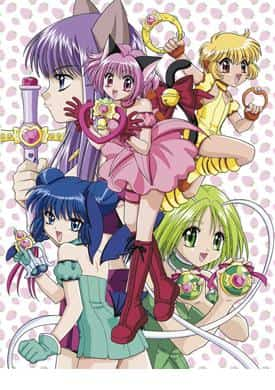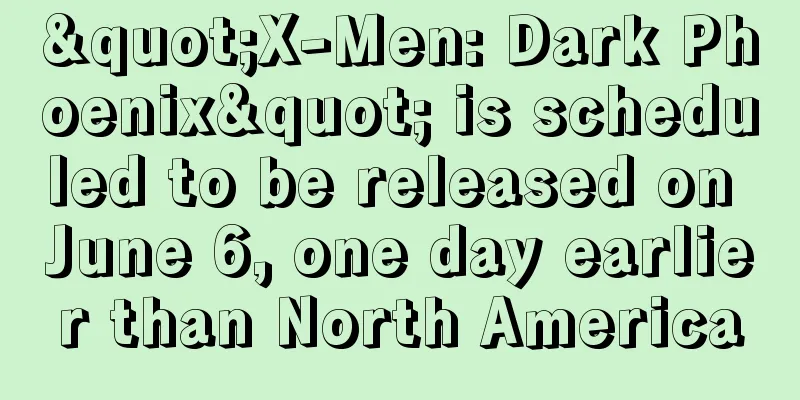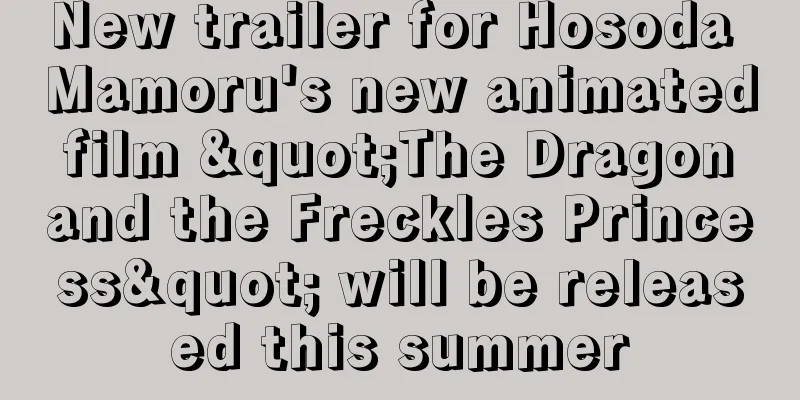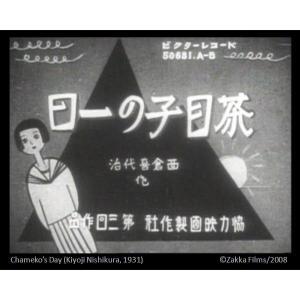A thorough review of the moving and beautiful NHK drama "Phoenix"
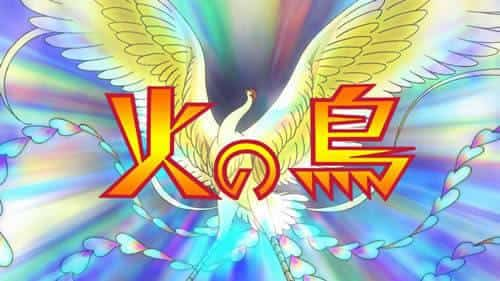
"Firebird" NHK version - A magnificent story about eternal life and human foolishnessTezuka Osamu's masterpiece "Phoenix" is an epic story written from 1954 to 1989, with themes of "eternal life" and "human stupidity." The anime series produced by NHK in 2004 condensed this epic story into 13 episodes, providing viewers with deep emotions and a catalyst for thought. In this article, we will delve deeper into the appeal of the NHK version of "Phoenix," its background, and the details of the work. OverviewThe NHK version of "Phoenix" was broadcast on NHK-BS Hi-Vision from April 4 to June 27, 2004. It consists of 13 episodes, each 30 minutes long, and is based on the original work by Tezuka Osamu. It was directed by Takahashi Ryosuke and animated by Tezuka Productions. Thirteen/WNET New York and NHK Enterprises participated as international co-productions, and the production and copyright were handled by NHK. storyThe NHK version of "Phoenix" consists of five episodes. Each episode deals with a different time period and theme, but they all share the same theme of "eternal life" and "human foolishness." Dawn (episodes 1-4)Set in the 3rd century, "Dawn" depicts the foolishness and sadness of humans seeking "eternal life." It tells the story of a young boy named Nagi who lives in the Land of Hi at the foot of Mount Fire, his older sister Hinaku, and Guzuri, a pharmacist who washed up on the shores of the island from across the sea. Hinaku's life is saved by Guzuri's treatment, and the two fall in love. On their wedding night, Guzuri encounters a fleet led by General Sarutahiko, who has been ordered by Queen Himiko of the Yamatai Kingdom. This episode depicts human desire and the tragedy that results from it. Resurrection (episodes 5-6)Set on the moon in the 25th century, "Resurrection" depicts the latest medical technology and "eternal life." Leona is caught in an explosion at a research facility and is revived with the latest medical technology, but loses his memory and sees the people around him as junk. Leona's old friend Lamp tries to help him regain his memory, but Leona meets a woman named Chihiro, who is the only one he can see as a human. This episode depicts the progress of science and technology and its impact. Strange Beings (Episode 7)The "Igyo-hen" chapter depicts a woman who is trapped in a cage of time and has gained "eternal life." Raised as a man, Sakonsuke sets out to kill Yaobikuni to save his cruel father, but after killing her, he finds out that they are both trapped in a circle of time. A shocking turn of events awaits: the nun is in fact his future self. This episode depicts the themes of time and reincarnation. Sun Chapter (episodes 8-11)Set in the 7th century, "The Sun" depicts the themes of power and religion. After being defeated in battle, Harima survives and comes to Yamato with the skin of his face peeled off and a wolf's skin put over his head. He calls himself "Inugami" and is recommended as the head of a small village. The imperial court at the time protected Buddhism as the state religion and tried to stop the belief in the ancient gods of the land. After accidentally saving the daughter of a land god, Inugami heads to Otsu-kyo to ask the king's younger brother for help, feeling responsible for the villagers and protecting their faith in the god. This episode depicts the conflict between power and religion. Future Arc (episodes 12-13)Set in the distant future, at the end of human civilization, "The Future" depicts Tezuka Osamu's unique views on time, reincarnation and life. The surface world is in ruins, and humanity lives in underground cities. Masato, who was chased out of the underground city for hiding his lover, an extraterrestrial life form called Moopy, finds himself in hiding on the surface world, where he finds Dr. Saruta, who is in seclusion. However, a final war breaks out between the computers that control the underground city, destroying the entire city. Dr. Saruta and his companions die from radiation poisoning, and humanity is destroyed, leaving only Masato, who had drunk the blood of the Phoenix, alone. This episode depicts the future of humanity and its demise. Commentary"Phoenix" is a work that Tezuka Osamu has been working on for over 50 years, and its themes include universal issues of "life" for all of humanity, such as "history," "religion," "love," "lifespan," and "way of living," as well as new issues modern people face due to the development of science and civilization, such as "the environment," "genetic manipulation," "cloning technology," and "the relationship between robots and humans." Although it was written over 50 years ago, "Phoenix" is a story that continues to ask the questions "What is a human being, and what is life?" even for those of us living in the 21st century. castThe cast of the NHK version of "Phoenix" is a star-studded cast of voice actors, including Takeshita Keiko as the Phoenix, Komura Tetsuo as Sarutahiko, and Kume Akira as the narrator. The main characters in each episode are also played by unique voice actors, including Takeuchi Junko, Nakao Michio, Tamagawa Sakiko, Kurumiya Ryoko, Sasaki Nozomu, Kobayashi Misa, Hirose Masashi, Asano Mayumi, Kubota Tamie, Matsumoto Yasunori, Uchikawa Airi, and Namikawa Daisuke. Main StaffThe main staff of the NHK version of "Phoenix" includes original author Tezuka Osamu, director Takahashi Ryosuke, screenwriters Ito Take Fuyuji, Hasegawa Keiichi, Sugii Gisaburo, Nozaki Toru, and Kobayashi Hirotoshi, animation director and character designers Sugino Akio, Uchida Yutaka, Nishida Masayoshi, and Oshita Hisama, art directors Kono Jiro, Nishida Minoru, Saito Masami, and Shibata Masato, colorists Minowa Ayami and Kobayashi Miyoko, music composers Uchiike Hidekazu and Nomi Yuji, sound director Kobayashi Katsuyoshi, sound effects director Tanaka Hidemi, sound recordists Hata Shoji and Takahashi Kiyotaka, editors Morita Seiji and Yamasaki Yuka, animation production manager Osawa Hiroshi, animation producers Shimizu Yoshihiro and Udagawa Sumio, production supervisors Kishi Kensuke and Tominaga Shinichi, and many other talented people. subtitleThe subtitles for the NHK version of "Firebird" are as follows:
Related TitlesA related work to the NHK version of "Phoenix" is "Phoenix: Hagoromo Edition." This work is also an animation based on the original work by Osamu Tezuka, and also depicts the theme of "Phoenix." Theme songs and musicThe theme song for the NHK version of "Firebird" is "Firebird", the opening theme, composed by Hidekazu Uchiike, arranged by Yuji Nomi, and performed by the Czech Philharmonic Orchestra, Chen Ming, and Mio Isayama. The ending theme is "Firebird", with lyrics by Reiko Yukawa, composed by Hidekazu Uchiike, arranged by Keiichi Tomita, and sung by Mika Nakashima. These songs are important elements that enhance the grand theme of the work. Ratings and RecommendationsThe NHK version of "Phoenix" faithfully reproduces the original work by Tezuka Osamu, while adding a new interpretation that appeals to modern audiences. Although the themes of each episode are different, the common themes of "eternal life" and "human foolishness" provide viewers with deep emotions and an opportunity to think. In particular, "Resurrection," which depicts the progress of science and technology and its effects, and "The Strange Being," which explores the themes of time and reincarnation, are of great interest to modern audiences. Also, don't miss the high quality production by the gorgeous cast and staff. Voice actors such as Takeshita Keiko and Komura Tetsuo express the characters' emotions realistically, drawing the audience into the story. Furthermore, the music by Uchiike Hidekazu and Nomi Yuji is also an important element in enhancing the atmosphere of the work. The NHK version of "Phoenix" is a work that can be enjoyed by both those who know Tezuka Osamu's original work and those who don't. It is especially recommended for viewers who like deep themes and those who are interested in Tezuka Osamu's works. Also, since each episode is independent, you can start watching from a specific episode. Please experience this epic story. summaryThe NHK version of "Phoenix" is an animated rendition of Osamu Tezuka's masterpiece, with themes of "eternal life" and "human stupidity." This work is made up of five episodes, each of which deals with a different time period and theme, but each episode has a common theme. Don't miss the high quality production by a stellar cast and crew. Highly recommended for viewers who enjoy deep themes and those interested in Osamu Tezuka's work. Be sure to experience this epic story. |
<<: Zettai Zetsumei Denjarasu Ji-san Season 2: A new challenge and a moving review
>>: The appeal and reviews of "Mermaid Melody Pichi Pitch Pure": A fusion of moving story and music
Recommend
Azuki-chan Season 1: What is the appeal of this soothing anime filled with cuteness and humor?
Azukichan Season 1 - Azukichan - Reviews and Reco...
I'm Nurarinhyon of Kabuki: A thorough analysis of the appeal of Minna no Uta
"I'm Nurarinhyon, the Kabuki Artist"...
"One Piece: Red-Haired Diva" 4K UHD Blu-ray Disc Confirmed to be Released on June 14
The new animated film "One Piece: The Red-Ha...
The appeal and reviews of ONE PIECE 3D Mugiwara Chase: A new experience of action and adventure
ONE PIECE 3D Mugiwara Chase - Movie Review and De...
"Godzilla vs. Kong 2" is scheduled to be released in mainland China, and King Kong will wear mechanical gloves
The movie "Godzilla vs. Kong: Rise of an Emp...
The Appeal and Review of The Monochrome Factor: Exploring the World of Dark Fantasy
"Monochrome Factor": Enjoy the dark act...
The second season of the TV animation "Uma Musume" will be broadcast in 2021. The latest trailer is released
The second season of the TV animation "Uma M...
"Naruto" new short comic will be released on July 18th. Masashi Kishimoto drew it himself after seven years
Although the super classic manga "Naruto&quo...
The appeal and evaluation of Kotatsu Neko: An anime that provides a relaxing time
"Kotatsu Cat" - 5 minutes of bliss that...
Queen Studio's ultra-limited 1/1 Iron Man MARK7 full-body statue is priced at 67,000 yuan
Recently, the famous model manufacturer Queen Stu...
Toei announces new animation "Le College Noir" to be produced in collaboration with French studio
Toei Animation announced on May 23 that it will j...
"Detective Conan: The Phantom of Baker Street" is released nationwide today. The well-received masterpiece is finally available to the public
The sixth film in the Detective Conan series, Det...
The official announcement of the sequel to the movie "Lone Wolf Blood 2" is confirmed
The sequel to the action thriller "Lone Wolf...
The appeal and evaluation of "The Idolmaster Cinderella Girls" 1st Season
The appeal and reviews of the first season of &qu...
Pre-sales of Avengers 4 exceeded 100 million in 10 hours, and ticket prices are soaring
"Avengers 4" recently opened the pre-sa...
